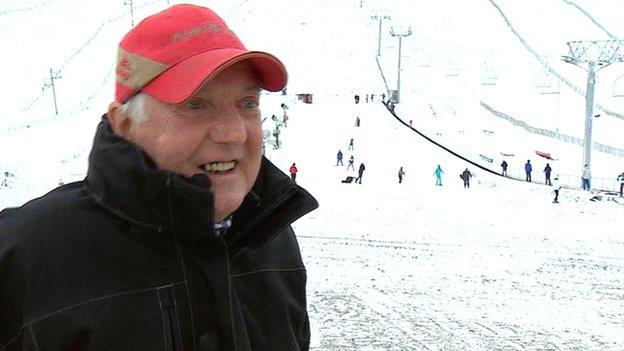Polling expert John Curtice gets 'unanticipated' knighthood
- Published
Sir John Curtice: "This will take quite a while to get used to."
Polling expert and political scientist John Curtice has been given a knighthood in the Queen's New Year honours list.
The veteran psephologist has been honoured for his high-profile work in political analysis.
His 2017 election exit poll correctly predicted the Conservatives would lose their majority.
The 64-year-old, famous for political predictions, said the honour was "not something I saw coming".
His polling work has been lauded for its accuracy, often departing from the general consensus to correctly predict shock election results.
The 2017 prediction led many to say that he was the true winner of the election. It followed accurate predictions in the 2005, 2010, and 2015 general elections.
After Sir John's 2015 poll predicted a David Cameron win, former Lib Dem leader Paddy Ashdown promised to eat his hat if it was correct. He was later given a hat-shaped cake on Question Time.
In a tweet on Saturday, Lord Ashdown offered his congratulations and jokingly referred to the hat incident, although he misspelled the polling expert's name.
Allow X content?
This article contains content provided by X. We ask for your permission before anything is loaded, as they may be using cookies and other technologies. You may want to read X’s cookie policy, external and privacy policy, external before accepting. To view this content choose ‘accept and continue’.
Regular appearances on BBC election coverage have given him a cult following, with memes and even a dedicated Twitter account, external to let people know when he is on TV.
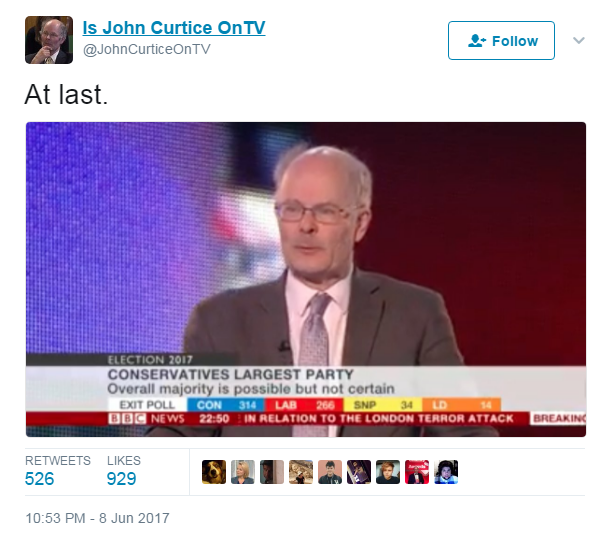
The election pollster said he was surprised to get the nod.
"The ironic thing is, back in June of this year, the exit poll that I led caused something of a surprise for the country and the result was very much unanticipated," he said.
"Well, I have to admit this was not something I saw coming. I am surprised as well as being honoured that I have been granted this knighthood."
Sir John said he was happy that so many people found his work useful.
He said: "The gratifying part of the citation for me is that it is not just for services to social sciences, but to politics.
"It is probably relatively rare for someone who avoids all partisan politics and all partisan comment to actually be cited as giving services to the political life of the nation.
"What seems to be true is that, for good or ill, people find that when I stand in front of a camera and try to explain to people what's going on politically using the academic work that I have done, people say that they find this useful, illustrating and informative."
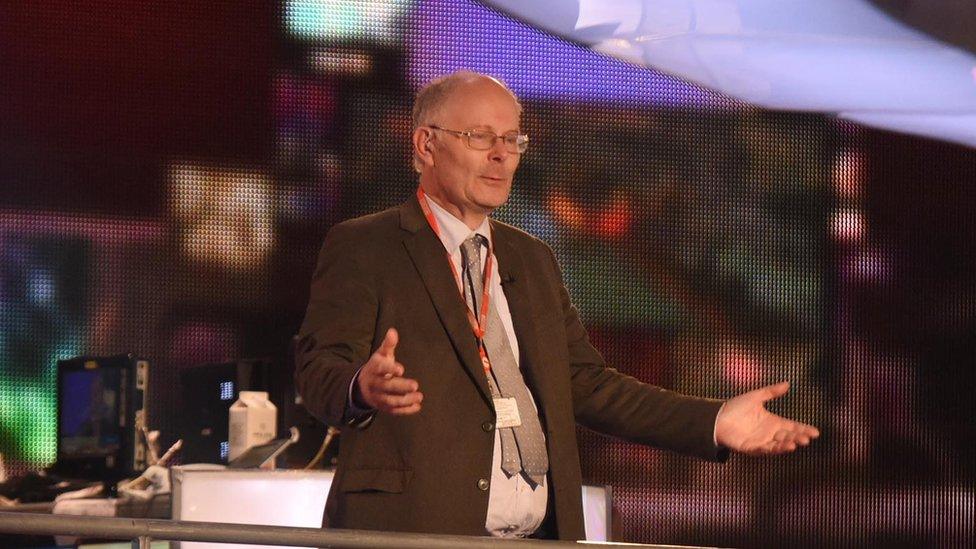
Polling expert John Curtice has received a knighthood
He admitted that he hopes 2018 will be a quieter year for politics.
"I guess like many other people in the political world, I am on tenterhooks as to what 2018 will bring", he said.
"Many people will be hoping that, in contrast to the last four years, there will not be a major election or referendum, but I guess we've learnt not to presume that will happen.
"If the government doesn't survive for the next 12 months it may be that I'm going to have to chance my reputation yet again with yet another exit poll but, in truth, I'm hoping not and that 2018 will be a relatively quiet year."
Born in Cornwall, he became interested in politics and voting patterns as a child.
"My earliest memories go back to the resignation of Harold Macmillan and the death of Hugh Gaitskell in the early 1960s," he said in a 2013 BBC interview.
"That's going back to the age of nine or 10, I was following those stories.
"I remember begging my parents to allow me to stay up during the 1964 general election count, and remember that very close result, and that only the following day did we knew that Harold Wilson had got an overall majority.
"Very odd pre-occupations for a nine or 10-year-old I utterly admit,"
Number crunching
He studied at Oxford, and in the late 1980s was approached by Strathclyde University to take over "number crunching" in their politics department, and has remained in the country throughout the intervening years.
His time at Strathclyde has overseen the birth of devolution in Scotland, and the independence referendum in 2014.
As well as his post at Strathclyde University, he is a senior research fellow at NatCen Social Research - Britain's largest independent social research agency - and president of the British Polling Council.
He received a lifetime achievement award earlier this year at the Times Higher Education Awards in London.
Sir John's official knighthood citation is for services to social sciences and politics.
- Published30 December 2017

- Published30 December 2017
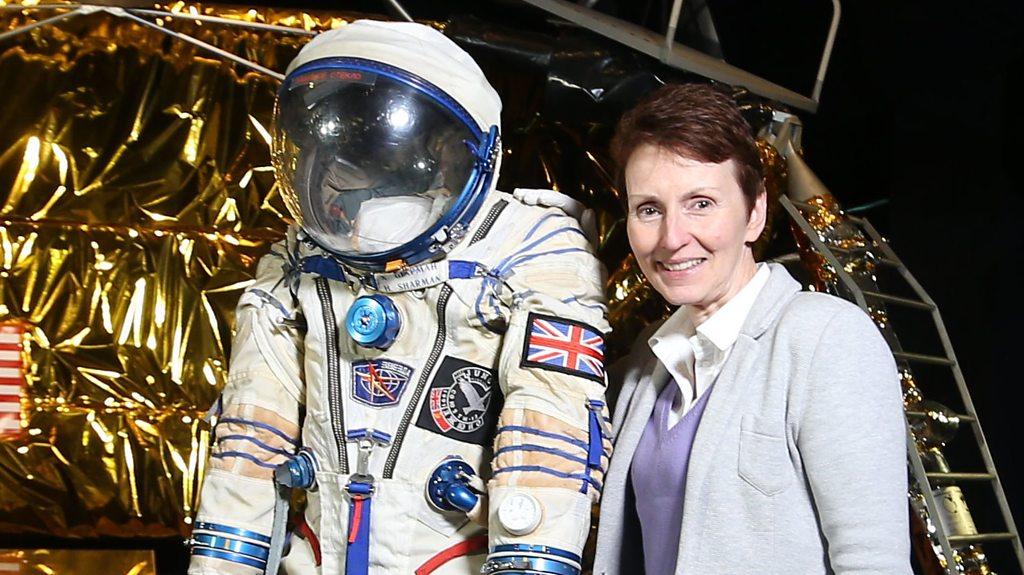
- Published30 December 2017
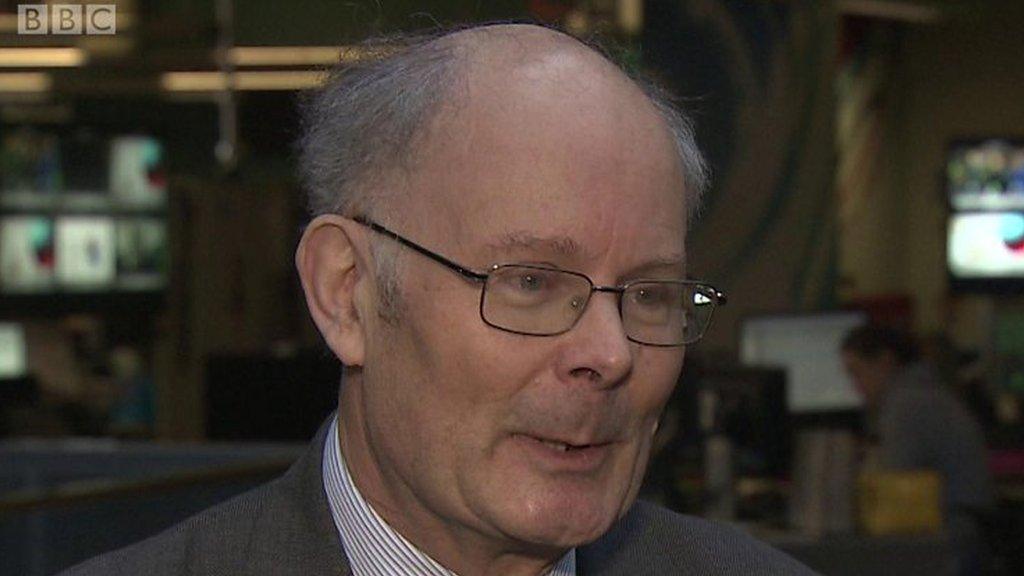
- Published29 December 2017
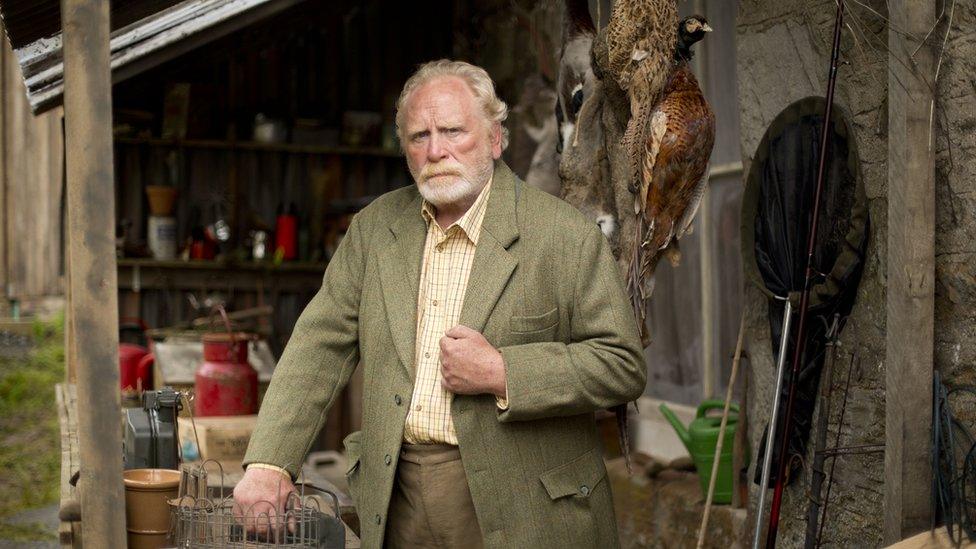
- Published29 December 2017

- Published29 December 2017

- Published29 December 2017
